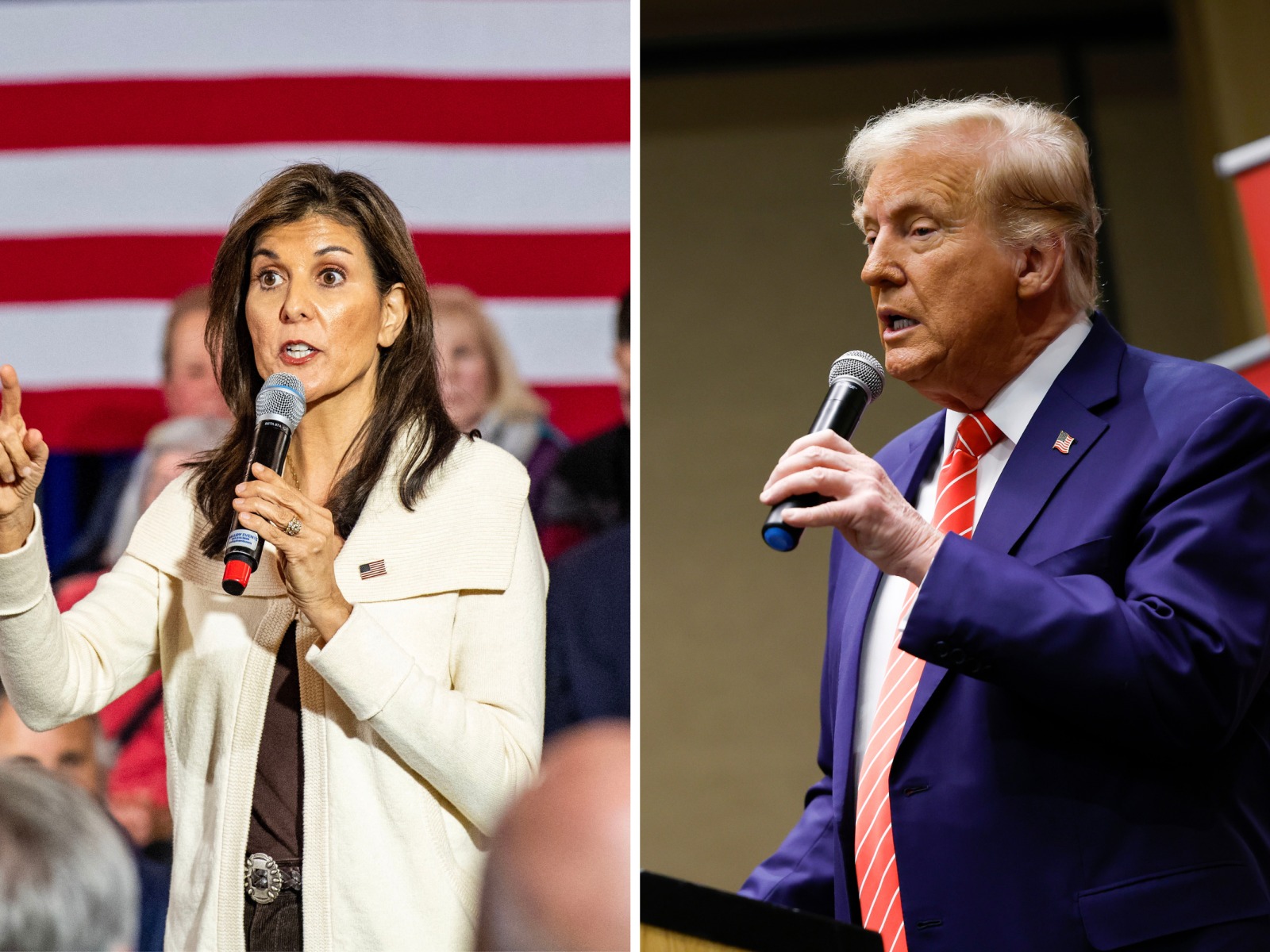Nikki Haley has decided to end her bid to become the first female president of the United States, acknowledging that Donald Trump will likely be the Republican nominee. Her decision came after Trump’s strong showing on Super Tuesday, the pivotal day in the presidential nominating process.
While Haley did not endorse Trump, she congratulated him and urged him to earn the support of her followers and others who have expressed concerns about his divisive brand of politics.
In response, Trump criticized Haley on social media, accusing her of taking money from Democrats and suggesting she should continue her campaign. Joe Biden praised Haley for her courage and extended an invitation to her supporters to join his campaign.

Haley and Trump (Credits: Newsweek)
Haley’s departure from the race clears the path for a potential rematch between Trump and Biden, despite polls indicating that many Americans are not enthusiastic about such a contest.
While both candidates have yet to secure the necessary delegates for the nomination, their strong performances on Super Tuesday suggest that they are the frontrunners for their respective parties.
Haley’s campaign, which began cautiously to avoid alienating Trump’s base, gained momentum in recent months as she criticized both Trump and Biden as unfit for the presidency. Her departure leaves Trump as the dominant figure in the Republican Party, but it also exposed some vulnerabilities in his support base.
In the primaries, Haley attracted many voters who remain skeptical of Trump, particularly in early voting states like New Hampshire, South Carolina, Michigan, and Iowa.
This suggests that while Trump may have a firm grip on the Republican Party, there are still pockets of resistance within the party that could challenge his reelection bid.























